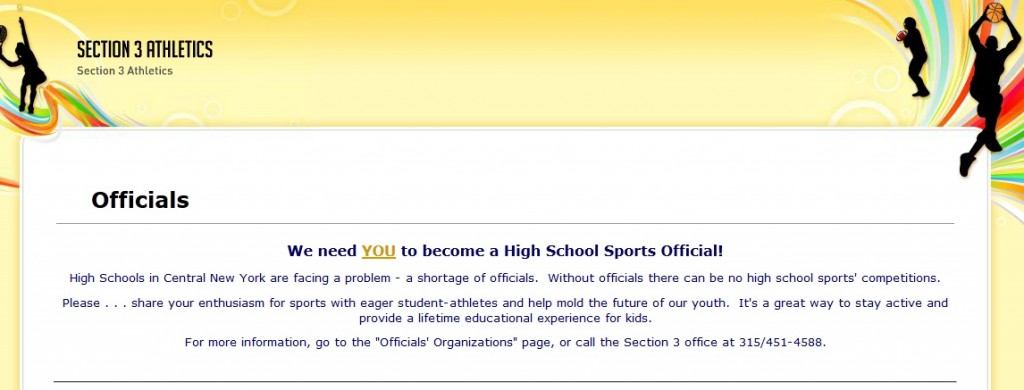Wanted: Referees and umpires for high school sports.
“If we don’t start really replenishing our numbers, we’re going to be in trouble,” said Cathy DeGarmo, a field hockey umpire for Central New York high schools for more than 30 years.
For at least a decade, DeGarmo and others in CNY high school sports have witnessed a steady decline in the number of referees and umpires for Section III Athletics of the New York State Public High School Athletic Association. Section III encompasses Syracuse, Utica and Watertown.
The shortage at times has led to the cancellation or postponement of games. In constant recruitment, the Section III website runs ads trying to attract new potential officials. The reasons for the dwindling numbers include retirements of aging officials, a lengthy certification process that discourages some newcomers and inconvenient hours.
All high school officials are independent contractors. They belong to various organizations — similar in some ways to unions — that sign contracts with Section III and the high schools.
John Rathbun, executive director for Section III Athletics, said his section pulls officials from 42 different organizations across all sports. The schools themselves are responsible for paying their wages and travel expenses, said Rathbun.
As the numbers have declined, Rathbun said, people in their early 20s are the new target audience. The officials’ organizations hold job fairs and distribute flyers in hopes of attracting recruits.
“What they want to do is let people get involved in the sport, let those people pay their dues, work the modified games to gain some experience,” Rathbun said. “So that way they have three or four years under their belt before they start working varsity-type games.”
But DeGarmo, the longtime field hockey umpire, said she thinks that time frame deters some recruits. Others might be put off by the initial six classes required to become a field hockey official before experiencing a live game, she said.
The pay for a varsity game, she said, is a “pretty good buck for what we do.” DeGarmo makes $134 three times per week officiating a varsity and junior varsity double shift. But she added, the long wait to get to officiate at that level can be frustrating.
“A lot of people when they find out what the time commitment is, they don’t want to do that,” DeGarmo said. “Recruitment and retention of officials around the state, and I’m sure around the country as well, has been a significant issue.”
(Michael Cohen is a senior newspaper major.)
-30-



